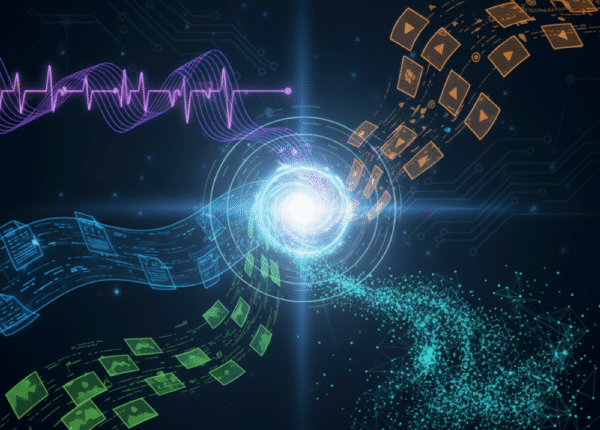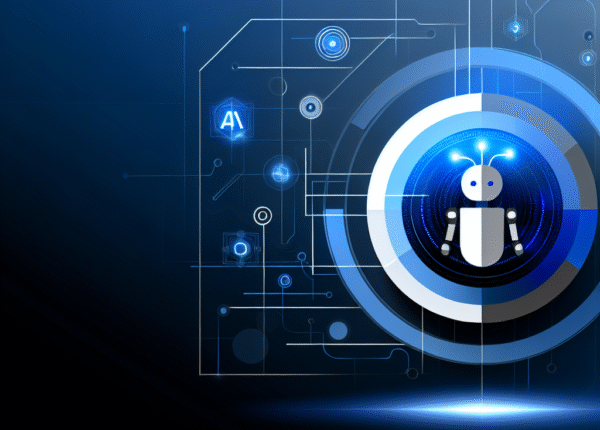Organic Literature to the Self-Writing Internet: AI News Roundup
AI headlines this week span a wide spectrum, from initiatives that label human authorship to bold bets on software that writes the code itself. In the United Kingdom, Books By People unveiled an Organic Literature stamp to help readers distinguish human-written books from AI-generated titles flooding online marketplaces. The program partners with an initial group of independent publishers and invites readers to seek a trustworthy mark of authorship amid a rapidly expanding digital shelf.
Meanwhile, questions of trust and accountability thread through other AI stories. A Canadian court fined Jean Laprade for submitting AI-generated hallucinations as part of his legal defense, a move the judge called highly reprehensible and potentially dangerous to the integrity of legal proceedings. The decision, imposing a C$5,000 fine, underscores that AI misuses can bleed from keyboards into real-world consequences and judicial scrutiny.
On the tooling and platform front, the next chapter is being written in real time. Anthropic has rolled out Claude Haiku 4.5, described as a small, cheaper model designed to work in concert with Sonnet 4.5. Retailers are piloting predictive AI copilots like Ellis to translate shopper signals into dynamic pricing and planning decisions. And in the research arena, the Dfinity Foundation unveiled Caffeine, an AI platform that builds production apps from natural language prompts, promising to compress weeks of traditional coding into minutes and challenging the conventional software stack as we know it.
The infrastructure narrative adds another layer of urgency. A data-center project known as Project Blue near Tucson, Arizona, has triggered questions about water and energy use and the broader impact on local communities. At the same time, Oracle is expanding its agentic AI platform as part of a wider strategy to position AI as a core software and hardware catalyst for enterprise ecosystems. Caffeine itself exemplifies a different architectural bet: applications run on the Internet Computer Protocol withorthogonal persistence that eliminates the usual friction of maintaining data across layers, while an App Market invites creators to clone and adapt apps rather than lock users into rigid licenses.
Education and everyday users are not immune to these currents. A UK study conducted with Oxford University Press shows AI making schoolwork feel easier for many students, stirring concerns about study discipline and creativity. Yet the same AI-enabled tools promise new opportunities to learn, experiment, and build, as highlighted by demonstrations and real-world hacks that show non‑technical people building functional apps and services with minimal or no coding. The era of a self-writing internet, where you talk to AI and the software writes the world, is moving from a theoretical concept to concrete demonstrations and enterprise pilots.
As these headlines intersect, readers are reminded that AI is not a single product but a system of evolving capabilities that touch culture, law, education, and industry. The coming months will reveal how much of this evolution is embraced by regulators, learners, developers, and everyday users—while journalists, publishers, and platform makers continue to test what it means to live with an AI-powered economy that still needs human judgment at its core.
Sources
- Guardian: Books By People launch Organic Literature certification
- Guardian: Canadian man fined for AI hallucinations in legal defense
- AI Business: Anthropic Claude Haiku 4.5
- AI Business: Retailers pilot Ellis predictive AI copilot
- Guardian: Arizona datacenter Project Blue
- AI Business: Oracle expands agentic AI platform
- VentureBeat: Dfinity launches Caffeine platform
- Guardian: Pupils fear AI eroding study ability
Related posts
-
AI News Daily: Enterprise AI Gains Ground as Data, Models, and Tools Transform Workflows
AI headlines this week stitched productivity with data and infrastructure as Anthropic announced Claude integrated with Microsoft 365,...
17 October 202536LikesBy Amir Najafi -
AI News Roundup: Suffering, AI Doctors, and a Slashed Abbey
AI News Roundup: Suffering, AI Doctors, and a Slashed Abbey In today's AI news roundup, we explore a...
31 August 202585LikesBy Amir Najafi -
AI News Roundup: Jobs Stay Steady as IBM Debuts Agent Tools and AI Ethics Reach UK Travel
Today’s AI news agenda reads like a mosaic of how AI touches work, governance, and daily life. A...
7 October 202534LikesBy Amir Najafi

